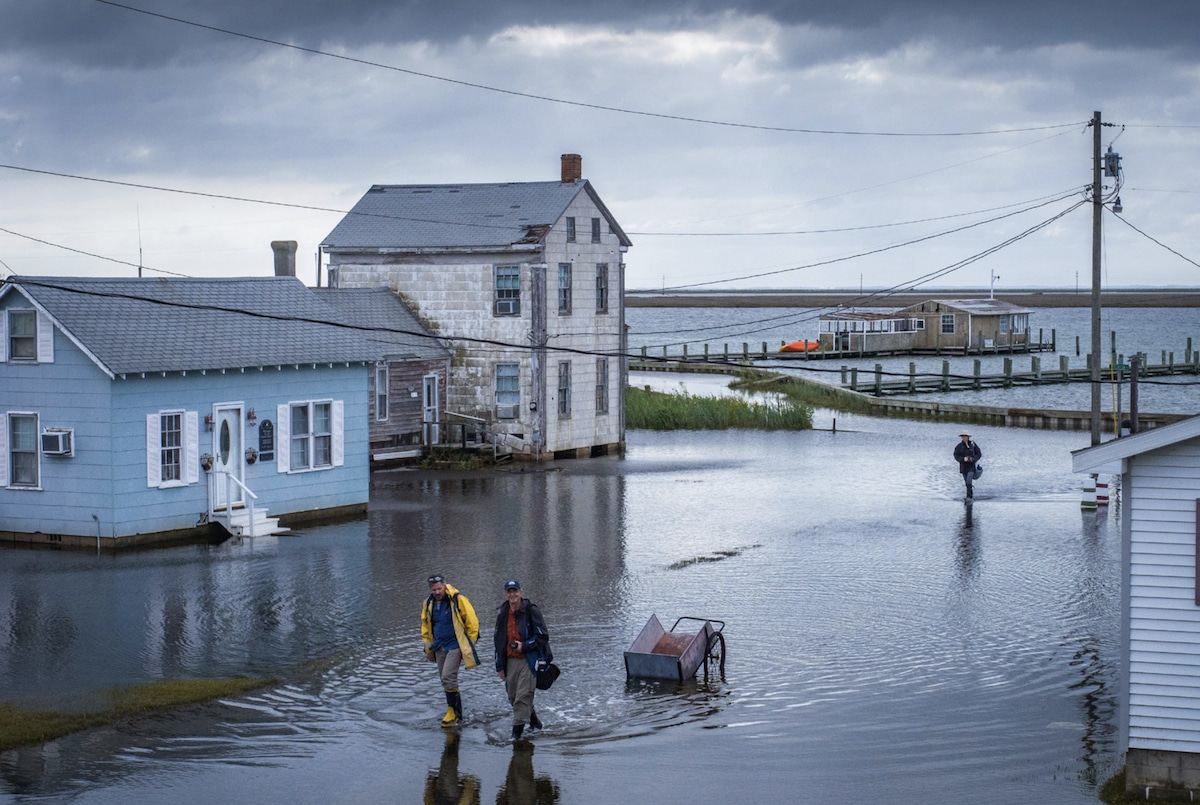
Sea Levels Rising at Fastest Rate in 3,000 Years: New NOAA Report Warns of ‘Flood Regime Shift’

U.S. coasts will be inundated by one foot of sea level rise over the next 28 years, according to a report released Tuesday by NOAA and other federal agencies.
Sea levels, driven higher by climate change primarily caused by the extraction and combustion of fossil fuels, are rising faster than at any point in the last 3,000 years and will rise as much in the next three decades as they have over the past century.
Higher sea levels means a further, dramatic increase in high tide flooding, storm and wastewater systems unable to cope with the influx of seawater, crop fields sterilized by saltwater inundation, and septic systems overwhelmed by higher water tables — not to mention increased vulnerability to hurricanes and tropical storms.
The predicted sea level rise will make some areas effectively uninhabitable with about 140,000 homes at risk of twice-a-month flooding. “We can see this freight train coming from more than a mile away,” Andrea Dutton, a University of Wisconsin-Madison geoscientist, told the AP. “The question is whether we continue to let houses slide into the ocean.”
As reported by The Washington Post:
Looking ahead to the end of the century, the amount of planet-warming pollution people release into the atmosphere could mean the difference between sea levels stabilizing at about two feet above the historical average or surging by almost eight feet, NOAA reports.
“This report is a wake-up call for the U.S., but it’s a wake-up call with a silver lining,” NOAA Administrator Rick Spinrad told journalists in a teleconference Tuesday. “It provides us with information needed to act now to best position ourselves for the future.”
"We’re unfortunately headed for a flood regime shift," said the nation's top sea level rise scientist.
— Sarah Kaplan (@sarahkaplan48) February 15, 2022
Humanity's carbon emissions has locked in a foot of sea level rise over the next 30 years. But swift climate action can still prevent worse impacts.https://t.co/4pyCaVm0wQ
For a deeper dive:
AP, The Washington Post, E&E News, Axios, NPR, Reuters, CNN, POLITICO, The Hill, The Wall Street Journal; Sea level rise explainer: The Conversation; Climate Signals background: Sea level rise
For more climate change and clean energy news, you can follow Climate Nexus on Twitter and Facebook, sign up for daily Hot News, and visit their news site, Nexus Media News.

 233k
233k  41k
41k  Subscribe
Subscribe 